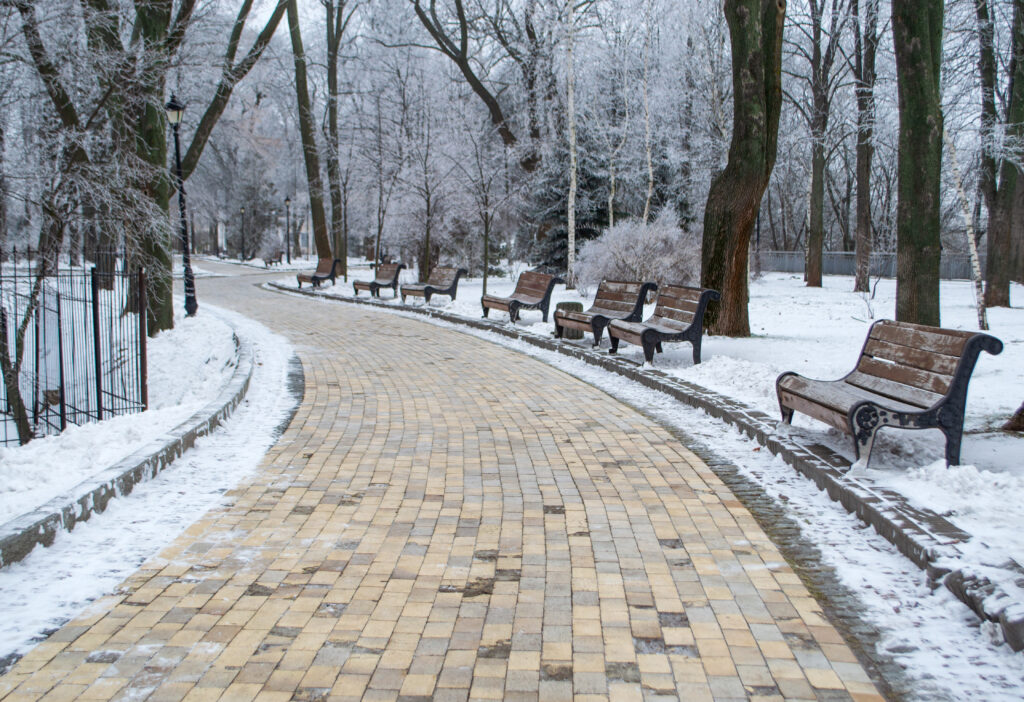can Safe Paw or Safe Thaw Damage Stone or Mortar? Understanding Porosity and Protection

When winter hits, homeowners reach for deicers to keep steps, patios, and walkways safe. But what happens when those walkways are made of stone and mortar? A frequent concern is whether pet-safe deicers like Safe Paw or Safe Thaw might damage these materials. The answer lies not in the product—but in the material itself.
The Truth About Mortar and Porous Stone
Mortar is inherently very porous, which means it easily absorbs moisture. When snow or slush sits on unsealed mortar joints, water can seep in. If that water freezes, it expands. Over time, this expansion can cause spalling, cracking, or crumbling, even if the concrete or stone around it remains solid. This has more to do with water intrusion than the product applied on top.
As for stone, the outcome depends entirely on the type of stone used. Natural stones like limestone and sandstone are more porous and thus more vulnerable. Denser stones like granite or slate are far more resistant to moisture, and therefore, to freeze-thaw damage. But even in these cases, if the mortar between stones remains unsealed, it becomes the weakest point in the system.

